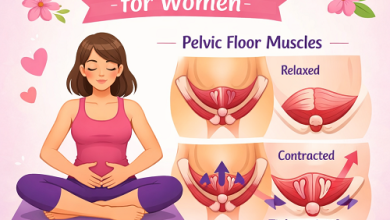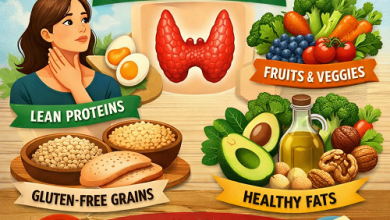The Top 7 Weekly Habits for Strong Bones, According to Specialists

Strong bones aren’t just important as we age—they’re essential for long-term mobility, independence, and overall health. While many people think about bone strength only after they start experiencing joint pain or fractures, specialists emphasize that bone health is built day by day and week by week. Small, consistent habits can significantly strengthen your skeletal system, regardless of age.
Bone density peaks around age 30, but the good news is that you can maintain, protect, and even improve your bone strength with regular, intentional routines. Whether you’re a busy professional, a fitness enthusiast, or someone who simply wants to age gracefully, adopting the right habits can make all the difference.
Here are the top 7 weekly habits for stronger bones, backed by insights from orthopedists, endocrinologists, dietitians, and physical therapists.
1. Do Weight-Bearing Exercises at Least 3 Times a Week
One of the most effective ways to build and maintain strong bones is through weight-bearing exercise—activities that force your body to work against gravity. According to specialists, these exercises stimulate the formation of new bone tissue.
Why It Works
Bones respond to stress. When you place controlled pressure on them, your body increases bone-building activity. This is especially crucial for preventing osteoporosis.
Best Weekly Activities
- Brisk walking (30–45 minutes)
- Strength training
- Hiking or stair-climbing
- Dancing or aerobics
- Jogging (if joints allow)
Expert Tip
Strength training is especially beneficial. Lifting weights as little as two to three times per week helps improve bone density in the spine, hips, and wrists—common fracture points with aging.
2. Prioritize Daily Calcium-Rich Foods
Calcium is the foundational mineral for bone health. But specialists emphasize that dietary calcium is more effective and safer than supplements for most people. A weekly eating pattern rich in calcium significantly supports bone formation and repair.
Calcium-Rich Foods to Add Weekly
- Dairy products: milk, yogurt, kefir, cheese
- Leafy greens: kale, bok choy, collard greens
- Fish with edible bones: sardines, canned salmon
- Fortified foods: orange juice, cereals, plant-based milks
- Almonds and sesame seeds
How Much You Need
- Adults 19–50 years: 1,000 mg/day
- Women 50+ and men 70+: 1,200 mg/day
Expert Tip
Spread calcium intake throughout the day. Your body absorbs it better in smaller amounts rather than one large dose.
3. Get Enough Vitamin D Every Week—Your Bones Depend on It
Calcium is useless without vitamin D, which helps your body absorb and regulate it. Specialists find that low vitamin D levels are among the top causes of bone weakness.
Ways to Boost Vitamin D Weekly
- Sun exposure: 10–20 minutes several times a week
- Foods: egg yolks, fatty fish, fortified dairy
- Supplements: if prescribed by a doctor
Why Vitamin D Matters
- Prevents bone softening
- Enhances muscle strength
- Supports immune function, reducing inflammation in joints
Expert Tip
Ask your doctor for a vitamin D blood test once a year. Most adults need 600–800 IU/day, but some require more.
4. Add One or Two Sessions of Balance & Flexibility Training
Strong bones are important—but so is avoiding falls that can lead to fractures. Specialists agree that balance training is one of the most overlooked elements of bone health.
Benefits of Weekly Balance Training
- Reduces fall risk
- Strengthens stabilizing muscles
- Improves posture
- Enhances mobility and confidence
Best Balance-Building Activities
- Yoga
- Tai chi
- Pilates
- Standing on one leg
- Walking heel-to-toe
Just 15–20 minutes twice a week is enough to significantly reduce fall-related injuries, especially in older adults.
5. Eat More Magnesium, Vitamin K2, and Other Bone-Supporting Nutrients
While calcium and vitamin D get the spotlight, specialists say that several other nutrients play powerful roles in bone formation. A strong-bone diet is diverse—not limited to dairy or supplements.
Essential Bone-Boosting Nutrients
Magnesium
Helps convert vitamin D into its active form.
Found in: nuts, seeds, whole grains, spinach, beans.
Vitamin K2
Directs calcium into bones and away from arteries.
Found in: natto, eggs, fermented foods, aged cheese.
Phosphorus
Strengthens bone structure.
Found in: fish, nuts, poultry, dairy.
Potassium
Protects bones by reducing acid load in the body.
Found in: bananas, potatoes, tomatoes, avocados.
Protein
Essential for bone matrix and muscle strength.
Found in: lean meats, beans, lentils, tofu, dairy.
Expert Tip
Aim for meals that include protein, leafy greens, and whole grains—a powerful combination for bone protection.
6. Limit These Bone-Weakening Habits During the Week
Just as there are habits that build bone strength, there are others that slowly weaken your skeletal structure. Specialists recommend minimizing these weekly behaviors:
Too Much Sodium
High salt intake causes calcium to be lost through urine.
Avoid excessive chips, processed foods, and salty snacks.
Excess Caffeine
More than 3 cups of coffee a day can reduce calcium absorption.
Smoking
Damages bone-forming cells and disrupts estrogen levels.
Heavy Alcohol Consumption
Impairs vitamin D activation and slows bone repair.
High-Sugar Diets
Increase inflammation and weaken the bone-muscle connection.
Expert Tip
You don’t need to eliminate these completely—just reduce them. Small changes like cooking at home or choosing low-sodium products can make a big difference.
7. Schedule Weekly “Bone Check-ins” for Healthy Long-Term Habits
Perhaps the most overlooked habit is monitoring your lifestyle weekly to ensure you stay on track. Specialists say consistency—not perfection—is the secret to lifelong bone strength.
What to Track Weekly
- How many weight-bearing workouts you completed
- Daily calcium and vitamin D intake
- Water consumption
- Food choices
- Balance/yoga sessions
- Time spent sitting versus moving
- Stress levels
Why This Helps
Tracking habits reinforces awareness and encourages small adjustments before bad patterns form.
Expert Tip
Use a simple weekly checklist or app. If you can hit even 70% consistency, your bones benefit dramatically.
Why Strong Bones Matter More Than You Think
Strong bones affect more than your risk of fractures. Specialists emphasize that bone health impacts:
✔ Posture
Weak bones lead to hunched shoulders, spinal curvature, and back pain.
✔ Mobility
Bone and muscle strength work together. Good bone density helps you stand, walk, climb stairs, and stay active.
✔ Independence in Later Life
Hip fractures are one of the leading causes of disability in older adults. Strong bones help prevent this.
✔ Metabolism & Hormones
Bones store minerals, release hormones, and influence energy levels more than most people realize.
How Long Does It Take to Strengthen Bones?
Bone formation is a slow—but steady—process. Specialists say that with consistent habits:
- You may see improvements in 3–6 months.
- Significant bone density changes occur within 12–24 months.
- The earlier you start, the better your long-term bone health.
Even if you’re over 50, it’s never too late. Studies show older adults can still build bone mass with the right weekly routine.
Sample Weekly Routine for Stronger Bones
To make these habits practical, here’s a specialist-approved sample plan:
Monday
- 30-minute brisk walk
- Calcium-rich breakfast (yogurt + fruit)
Tuesday
- Strength training (legs + core)
- Magnesium-rich dinner (spinach, quinoa, almonds)
Wednesday
- 15 minutes yoga or balance training
- Sun exposure 15 minutes
Thursday
- Strength training (upper body)
- Plenty of water and minimal caffeine
Friday
- 45-minute walk or dance workout
- Vitamin K2-rich foods (eggs, cheese)
Saturday
- Nature walk, hiking, or cycling
- Bone-supporting meals (greens + protein)
Sunday
- Weekly bone check-in
- Plan calcium-rich meals for next week
When to See a Specialist
If you experience:
- Frequent fractures
- Back pain or shrinking height
- Menopause-related bone changes
- Thyroid or hormone disorders
- Vitamin D deficiency
…then consulting a doctor, endocrinologist, or bone specialist is important. They may suggest a DEXA scan, supplements, or personalized therapy.
Final Thoughts
Bone health is not built through one dramatic change—it’s created through week after week of small, intentional habits. By incorporating weight-bearing exercise, nutrient-rich foods, balance training, and mindful lifestyle choices, you can build stronger bones at any age.
The sooner you adopt these seven weekly habits, the more protected, energetic, and mobile your future self will be. Bones are living tissue, constantly renewing—give them what they need, and they’ll support you for decades to come.




